Plato, writing in approximately 360 BC is the first philosopher to bring forth the concept known primarily in Gnosticism as the Demiurge which was derived from the “Platonic theory of creation out of primordial matter.” His theory was described in his most infamous book, Timeus which was based on his dialogue with his former Master, Socrates.
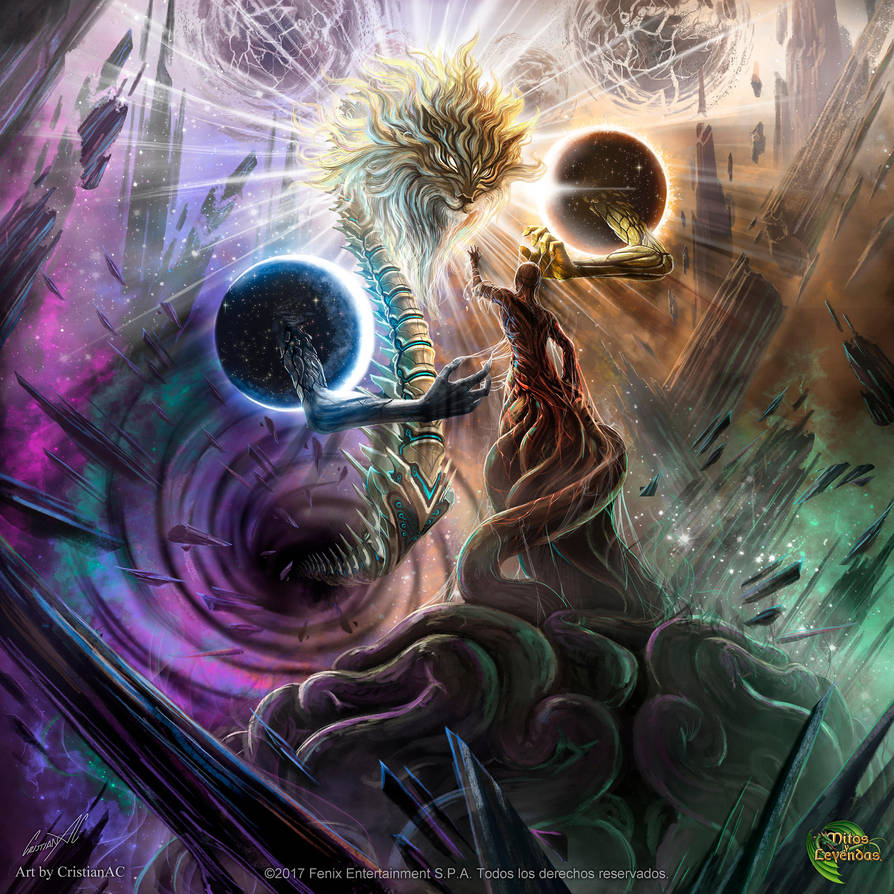
Plato’s theory of the Demiurge is the result of carrying on the Greek philosophical tradition of studying the As Without ie: nature of space and time to that of his master Socrates who shifted the focus of his students from studying the world and universe which they believed to be a living and breathing organism to the moral issues and the nature of man as it relates and how it is all interconnected with one another.
Plato’s cosmology had put forth a theory that the behavior of human beings could not be understood purely by their behavior and or in mechanistic terms but required a knowledge of the environment ie: the world and universe in which the self is intimately linked.
These concepts of the self later led to the ideas that humans are a microcosm of the great macrocosm and to the most infamous Gnostic axioms, “Know Thyself” and “As Above So Below, As Within, So Without.”
In Timaeus, Plato continues the dialogue as the character Timaeus with Socrates in which he refers to the Demiurge as a benevolent entity who “fashioned and shaped” the material world which remains imperfect. Plato’s cosmology of the “world-forming God” (Srjiuovpyos, demiurge) is the agent who takes the preexisting materials of chaos, arranges them intelligently according to the models of eternal forms, and produces all the physical things of the world, including human bodies formed or shaped out that which is not being, ie; space, “with regard to the Ideas.”
According to the Timaeus, humans live on earth at the center of the kosmos which he compares to one unique perfect cosmic organism, in whose image we have been created, and whose nature and destiny have been ordained by unseen forces from eternity. Plato’s Demiurge became the foundation of the natural philosophical concept called Organicism which views the universe and its parts as an organic living organism based on the Ancient Greek view that the world is orderly and alive.
Platos theories are a continuation of the teaching of previous Philosophers such as Pythagoras who said that the world as a living breathing being (Robinson, 1968) and claimed that “The whole air is full of souls which are called genii or heroes” which played such a prominent role in Greek creation stories for many centuries. The ancient mythos that I will attempt to prove in my next article on the Demiurge is now being validated by science to become part of our new organic reality based on Truth rather than theories.
It is interesting to note that Plato makes it clear that in attempting to explain the Demiurge and understand the “beginning,” Socrates and his friends specify that they do not expect to find the “truth,” but only a “likely story” (eikos mythos), which can be construed today as philosophical theories, worthy of scientific belief.
According to Plato’s “likely story,” the four physical elements of earth are water, air, and fire had existed before the creation of the world and the Demiurge created the world out of primordial material. The Demiurge creates an intelligent universe because intelligent life is better than mere life. It is alive and intelligent filled with mortal organisms that act as a microcosm of the great macrocosm.
Plato mentions the “primordial receptacle” which is defined as “empty of all forms” and it receives all things in a “wondrous” way, and its connection to the intelligible is “incomprehensible.” He describes the primordial receptacle as “not a substance” but merely an amorphous “stuff” that is not “tangible” and is “in no way perceptible to the senses.”
The meaning of primordia is an organ, structure, or tissue in the earliest stage of development from the Latin, neuter of primordius ‘original’, from primus ‘first’ + ordiri ‘begin’. A receptacle is defined as a container, device, etc., that receives or holds something.
This concept of a primordial receptacle had led me to what I believe is one of the best modern interpretations of the Demiurge that I have found and will scientifically expand upon in the future is from, Baruch Spinoza who was a Dutch philosopher of Portuguese Sephardi origin and considered a radical by his contemporaries. He had written, “Alles ist eins, und eins ist alles.”
He says, “The Demiurge is the space that holds the universe. He himself being one is the universe”
In researching the various interpretations from Plato, Neoplatonists, the Gnostics, early Judeo Christian writers, and Church Fathers, the main consensus is that he is the “God of Matter”, “Judge and sanctioned by God himself,” “Lord of the Material Realm and Flesh” and the Gospel of Phillip reveals to us that the bad angels of the Demiurge are known as the “domesticated ones” that are “wild and living apart,” and who are “submissive and obedient” in which Sophia uses them in “preparing for everything to come into being.” (Gospel of Philip 60:24-31)
To explain the Demiurge in the most simplest terms, we can say that he is an ancient philosophical concept that has been used since the time of Plato (Timaeus) to describe an organic entity, diety and even a God that was endowed by the Universe with a special type of the creative energy for intelligently fashioning, molding, maintaining, and even legislating what we know as you, me, and the world.
In Freemasonry, the Demiurge is known as the “Great Architect of the Universe or G.A.O.T.U.” and the Masonic motto “ORDO AB CHAO.”
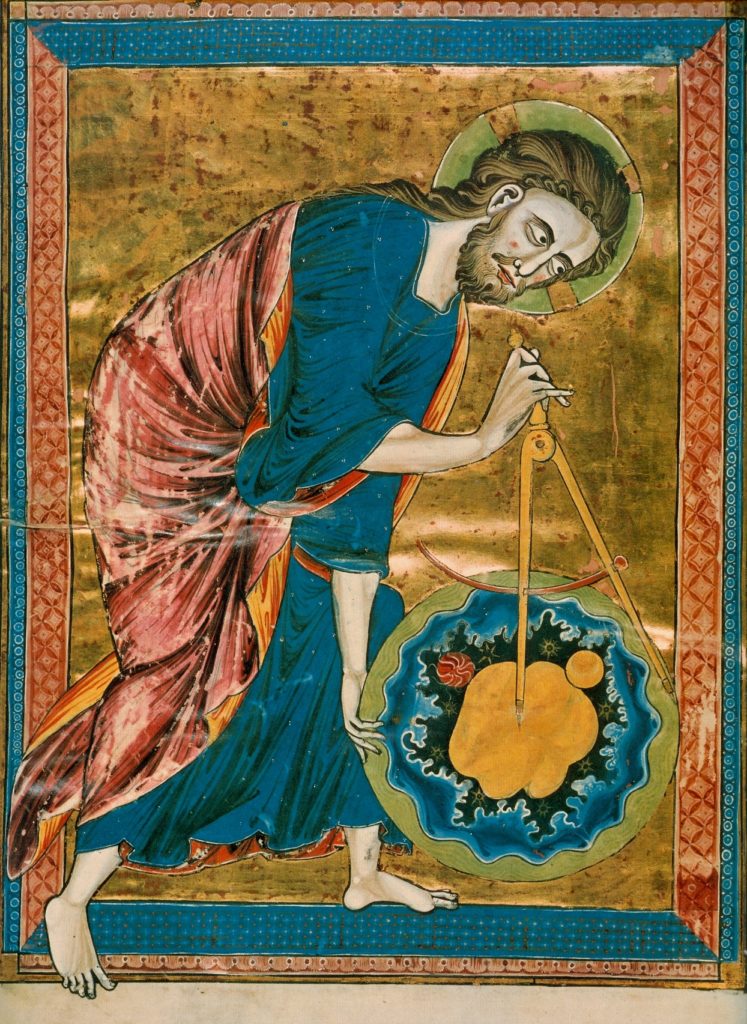
To Plato, space was the “nothing ” out of which the world of phenomena based on ideas that take the shape of mathematical forms in which space is then molded into the world of Ideas. These ideas are now mathematical structures that provide the intermediate link from the phenomena of pure “forms” born from the world of Ideas.
The ancient Greek word idea was spelled “εἴδω or eídō” and was pronounced I-do. The verb oida (to know) comes from the root eido (to see). In Plato’s philosophy, he calls the more real world, the world of eidos (idea in English) which is the Matrix or material reality constructed by man through ‘Forms’ or ‘Ideas’. This is the Platonic Eidos or Idea which is the main premise behind “The theory of Forms or theory of Ideas” to represent the most accurate reality.
The Greek words found in the New Testament that are often translated in English as “know” and “to see” are “eido, eida, eidos, oida, ida, ginosko, epiginosko, epistamai, gnosis and epignosis.” These words have the same semantic range and general meaning as the Greek words “ginosko and eido” are translated as, “to observe or to come to know through observation – to perceive and understand.”
This is why the word idea means, “to conceive anything in the mind; also a model, a copy to be imitated.”
To copy ideas of a philosophical model and expand upon its sacred instruction is the very reason that since the beginning of recorded time, the greatest philosophers, religionists, and scientists are almost always imitated and honored by those who have gone after them. A divine right of succession that makes the Son the Father just like Plato had done with the teachings of his spiritual forefathers being Pythagoras and Socrates.
As if we are all products of creation and from the world of ideas, we are Sons molding one another from the First Father, and then if we supersede these spiritual teachings of our Forefathers as was their desire, we would become Fathers ourselves whose Philosophies develop or enhance religious tradition, doctrines, laws, and the foundation of all sciences from the beginning of recorded time. As if we are passing the baton of ideas to one another which are molds meant to be expanded upon and grow rather then remain the same or stagnate which is the first phase of decay/death.
By doing so, we break free of the Demiurge.
This phenomenon of ideas connected via space and time I intuitively experience almost every day in my research of these ancient concepts through the thread of time when I encounter the very same people such as Pythagoras, Plato, Gnostics, and Church Fathers stretching back thousands of years, over and over again. Then there is the current world of modernity where we use the 5G internet as a vehicle in space to connect with like-minded souls around the globe who seem to be operating in the same frequency in the air with this same philosophical research.
Hence, “You Will Know Them by Their Fruits.”
This is why I believe Plato is honored by Christian Fathers as one of the premiere Gnostics and his teachings became part of Christian doctrine while other Gnostic concepts were analyzed and deemed to be inappropriate for the teachings of Gentiles. In speaking against the heresies of these ‘other Gnostics,’ Irenaeus had said that;
“Plato is proved to be more religious than these men, for he allowed that the same God was both just and good, having power over all things and Himself executing judgment, expressing himself thus, And God indeed, as He is also the ancient Word, possessing the beginning, the end, and the mean of all existing things, does everything rightly, moving round about them according to their nature; but retributive justice always follows Him against those who depart from the divine law.
He continues, “Then, again, he points out that the Maker and Framer of the universe is good. And to the good,
he says, no envy ever springs up with regard to anything;
thus establishing the goodness of God, as the beginning and the cause of the creation of the world, but not ignorance, nor an erring Æon, nor the consequence of a defect, nor the Mother weeping and lamenting, nor another God or Father.”
From Plato, the next interpretations of the Demiurge would come from the likes of Philo of Alexandria, Ptolemy, Marcion, Valentinus, and early Church Fathers who all expanded upon Plato’s originally theory which I will explain below. I will also attempt to expand upon Plato and his Gnostic predecessor’s “likely story” of the Demiurge using modern science which I believe will if it has not already become in the year 2020, a true story, the year of the Demiurge.
One of the earliest descriptions from the school of Plato comes down to us from Philo of Alexandria who says, “God is not only the Demiurge or Architect of the world but also its Creator.” (De Somn. 577) Plotinus, who is considered the founders of Neoplatonism had said, “the mundane soul (pvpavia, that quickens the material heavens), and our own souls rank next in order to the Demiurge” [Plotin. Enn. II. i. 5].
The Marcionites, the followers of the Doctrines of Marcion (Rome 140-150 AD) claimed that Jesus was the Son of the True God, who came to reveal the existence of his Father,” and “to deliver man from the empire of the Demiurge.” According to Origen, the Marcionites held that the good principle governs the Christians, the creating principle the Jews, and the evil principle the heathen.
The main tenants of the Marcionite system were to deny the influences of the flesh in which the Demiurge was the ruler by condemning marriage, wine, and whatever is grateful and pleasant to the body.
Ptolemy, in his Letters to Flora said the Demiurge acts as “the arbitrator of the justice which depends on him” (Letter to Flora 7:5) and he “established a rest for those who obey him, but for those who disobey him, he also established punishments” (Tripartite Tractate 101: 25-28).
“The one who judges and punishes is . . . the law-giver himself” (Herakleon Fragment 48). According to him, the Demiurge’s role as a judge is sanctioned by God himself. He is the “the servant commissioned for that purpose, who does not bear the sword in vain, the avenger of the king” (Herakleon Fragment 48). Judging and punishing the wicked as he rewards the virtuous, he acts as a servant of the true God. However, the spiritual ones who have attained Gnosis appear not to be subject to his judgment. Because of their redemption, “it has come to pass that they can neither be detained nor even seen by the judge” (Against Heresies 1:13:6)
Valentineus , the founder of the Valentinians says but folly is the power of the Demiurge, for he was foolish and devoid of understanding, and imagined himself to be fabricating the world. Valentinus quoting the quaternion said the Demiurge is “a source of the everlasting nature having roots; “and Sophia (is the power) from whom the animal and material creation has derived its present condition. But Sophia is called “Spirit,” and the Demiurge “Soul,” and the Devil ” the ruler of this world,” and Beelzebub “the (ruler) of demons.”
According to Valentinian tradition, the Demiurge is formed as an “an image of the Father”(Excerpts of Theodotus 47:1-3) and ‘god’ and ‘demiurge’ and ‘king’ and ‘judge’ and ‘place’ and ‘dwelling’ and ‘law'” (Tripartite Tractate 100:21-30).
It is interesting that the Valentinians find no issue in also calling the Demiurge by the names “Father” and “God” to describe him (cf. also Against Heresies 1:5:1, Valentinian Exposition 38). In their system, he is an actual image of the true God, but in a fallen state since the Demiurge is ignorant on account of his non-spiritual nature when compared with the true God and his Son, Jesus Christ, he is “coarse” or “rough” (Excerpts of Theodotus 33:4).
Church Father Irenaeus said that in order to deliver the souls of mankind from the Demiurge and put an end to this war, the Supreme God sent his Son Jesus Christ, in the appearance of a body, “dissolving the law and the prophets, and all the works of him that made the world.”
The Demiurge’s son is thus the representative of a union between the systems of the East and of the West.
For God proclaims in Isaiah; “I form the light, and create darkness: I make peace, and create evil: I the Lord do all these things.” (Isa. xlv. 7.)

Moe is the founder of GnosticWarrior.com. He is a father, husband, author, martial arts black belt, and an expert in Gnosticism, the occult, and esotericism.

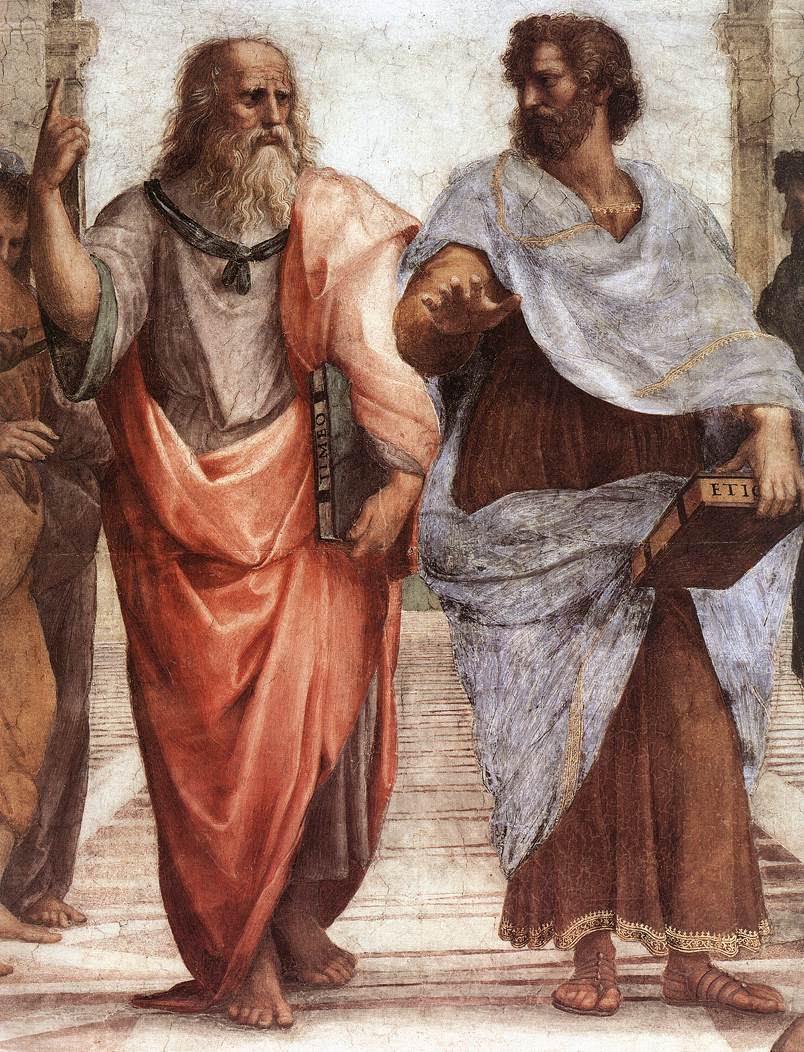
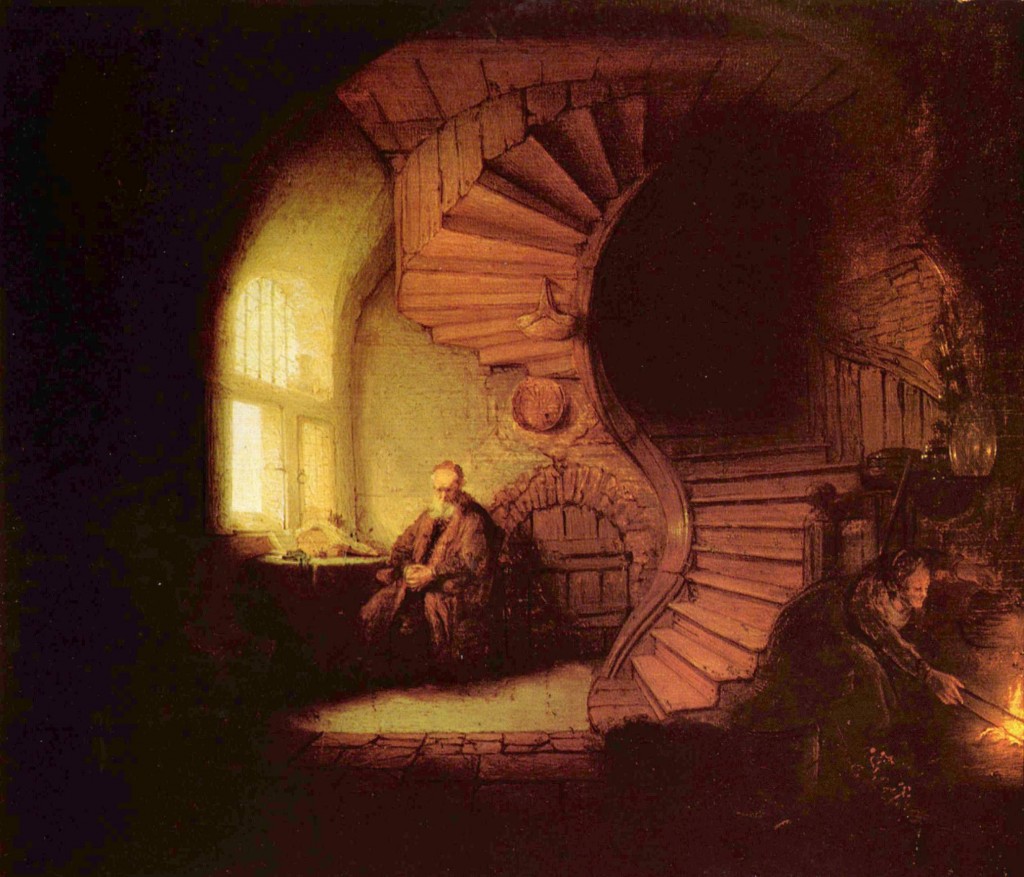

![How the same St. Cuthbert, living the life of an Anchorite, by his prayers obtained a spring in a dry soil, and had a crop from seed sown by the labour of his hands out of season [676 A.D.] | Book 4 | Chapter 28 How the same St. Cuthbert, living the life of an Anchorite, by his prayers obtained a spring in a dry soil, and had a crop from seed sown by the labour of his hands out of season [676 A.D.] | Book 4 | Chapter 28](https://www.gnosticwarrior.com/wp-content/plugins/contextual-related-posts/default.png)
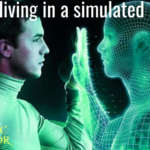
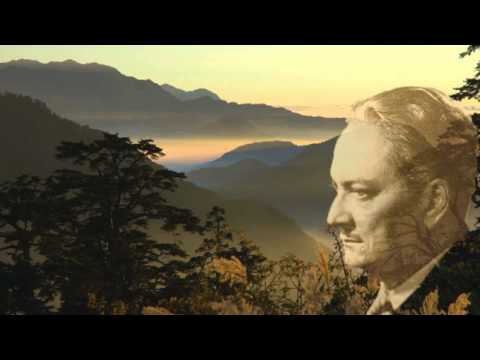
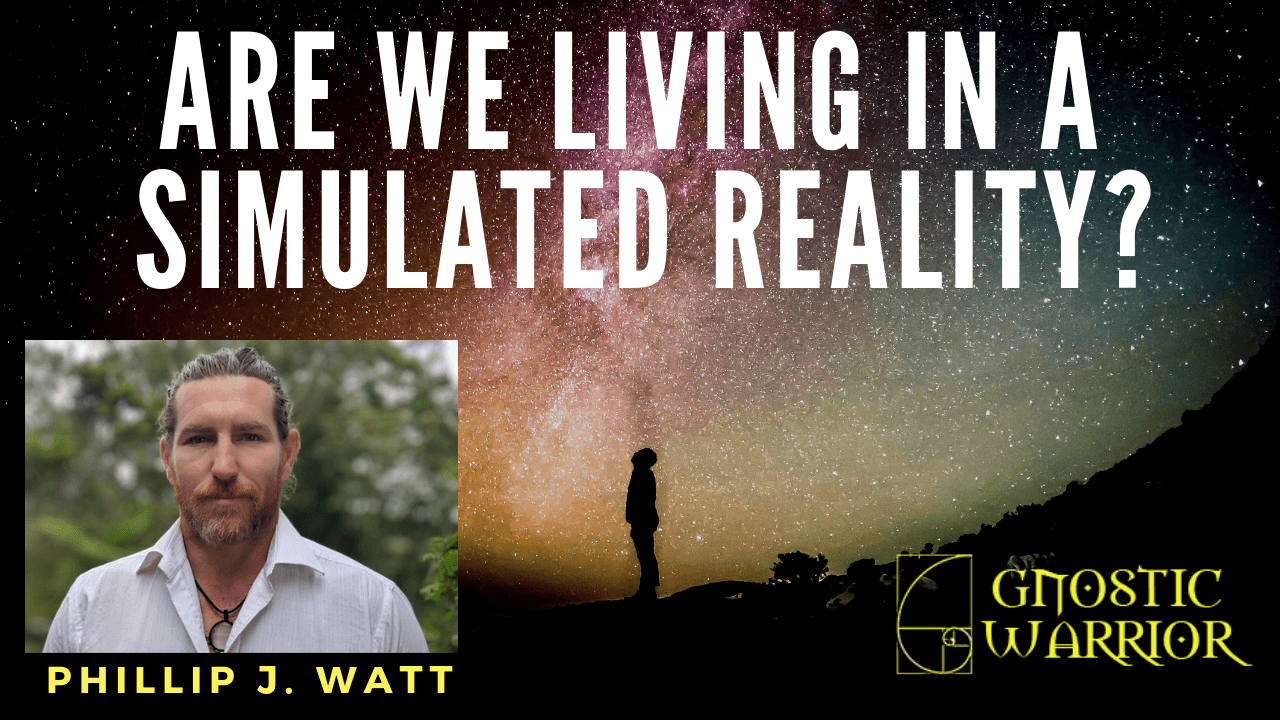
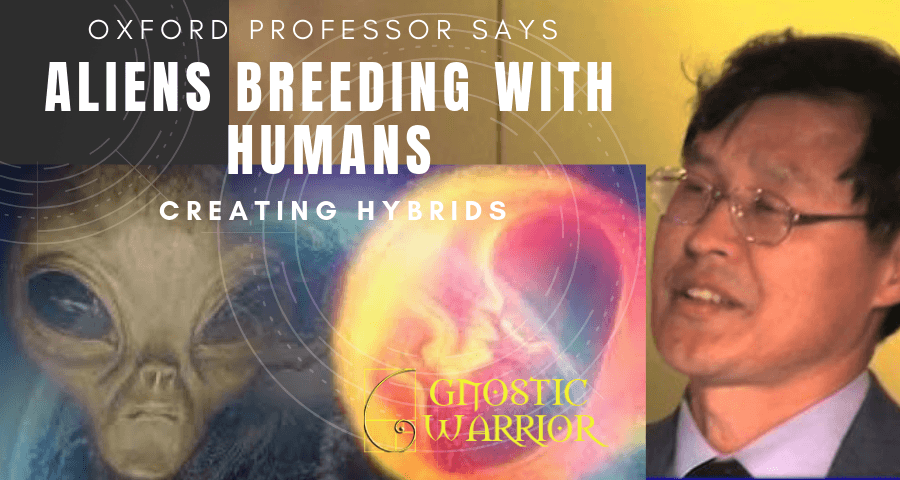
Hey Moe. I’m a passive visitor to your website. I very much value your opinion and expertise. I’m someone who has experienced some amazing phenomena (what others might call miracles) in my life as I try to understand creation and myself. My story is too long for this forum but my spiritual quest is an ongoing process.
I have many queries but would like to ask your opinion and insights on the “Law of One” material that is out there.
Hello Richard, Thanks for your comment. Yes, the Law of One is that all is one and we are connected to all – things, animals, the earth, the stars, and each other. The One Law is Love that connects us all. Hate and ideas divide us, while love for the good and each other unites us. In this reality, I have lived on both extremes. I can tell you that the earth, biosphere, microorganisms, spirits, animals, and your loved ones all respond to love positively which means it is the One Force that magnetizes the All. This is my understanding of the Law of One in simple terms and I hope it helps you along your path!
Moe, I’m working on the fundamentals of the universe in a new energy discovery that is actually a rediscovery from ancient Egypt the double ring disk or solar desk is not the sun it is actually the energy that creates these are field and lives in a parallel universe as close as our breath I’d love to talk to you more about this if you could contact me thank you
PanEntheism
Thank you for taking the time to create this.
“The main tenants of the Marcionite system were to deny the influences of the flesh in which the Demiurge was the ruler by condemning marriage, wine, and whatever is grateful and pleasant to the body.”
So by avoiding physical desire and pleasure a person will put themselves out of the teach of the punishments of the demiurge?
You are welcome. I do not agree 100% with the Marcionite system because I believe the goal is not to deny the flesh per say, but do not let the desires of the flesh which is the realm of the Demiurge God overrule the desires of the soul which is part of the Holy Spirit and from the True God. The universe seeks equilibrium and balance just as humans are happiest when we do the same.
With that said, enjoy a glass of wine here and then but do not become an alcoholic who depends upon alcohol to live and is ruled by the decaying fungi of the grapes which are organically part of his Self and the more decay you drink, the more you decay. Honor your wife and husband in Holy matrimony and have loving sexual relations but do not become obsessed with them or the sex and or have them rule over you to the point you are no longer a divine and autonomous spirit.
Hence, controlling physical desire so it does not control you is the goal and to do so, you must Know Thyself and Thy World in which we live.
Very enlightening and enjoyable article.i think that where people like Plato and Plotinus would differ from the Gnostics is that they would have believed that matter was/is infused with a divine life and their Gnosis is positive and not world rejecting.francis Yates hits on this positive Gnosis in her book on Bruno.id suggest that matter is potentially good or bad but only as interpreted by the mind using Gnosis.we can’t say for sure but only humans seem able to view the beauty in a sunset,the milky way arching overhead or the rings of Saturn and this beauty is with the observer not the object itself?
Thanks for your kind comment, Kevin. That is why I believe the Catholic Church had agreed on the teachings of Plato as their exoteric doctrine while rejecting what they called the heresies of the other Gnostics. In this article, I quote Chriuch Father Iraneaus who said Plato was closer to God ie: the Truth because he said that the Maker and Framer of the universe is good as opposed to Others who said that matter was inherently evil and to be avoided like the Marcionites.
In my opinion, humans are the highest being and a prize of all life being that we can not only see this beauty, we can also explain why it is such and in the same breathe if we chose to do so, but we can also destroy this beauty along with ourselves if we turn to nihilist Gnostic ignorant thoughts that matter is the source of evil.
Interesting article thank you for your efforts. I am still trying to piece reality together would you suggest that the demiurge is more equivalent to Rudolf Steiner’s/ rosacution Aramon or yhwh/Jehovah
Ps Have you ever read any of Life between Lives series or much on near death experiences? I found the aforementioned series very interesting.
This is very well written, an interesting read.
But…
I have some issues with all of these male perspectives on creation and how we came to be. As a woman who has THE power of creation I find it hard to believe that feminine energy played such a dismissive and submissive role. I believe that part of the problems today stem from denying the mother her true place, her acknowledgment.
Religion is deeply flawed and more than likely the biggest hoax/lie that has enslaved the mind of man for millennia.
Due to these “great ” philosophical minds such as Plato et.al it places me in a narrow space of acceptance simple because not all of the participants are accounted for, therefore our perceptions and intelligence is skewed. We’re not getting all the information.
Man’s flaw (downfall) has been and always will be the deliberate and blasphemous denial of the mother, the lover and wisdom.
It would be interesting to see your thoughts on this.
N
In certain cultures, women play a submissive role to men based on human ignorance and not Gnosis. The references you read in Gnostic literature and various occult teachings is not a reference to the gender of humans, but a metaphysical concept to explain idea and theories as it relates to humans using our same speech.
In a future article, I will explain Plato’s concept of the receptacle as a biological metaphor, as the Mother of Becoming, in addition to his theory of Forms (ie: the Model) being the Father (51A) and the world of becoming is an imitation of the model which he calls, “the receptacle of all becoming” (49a).
Have you missed the Pistis SOPHIA? 😉